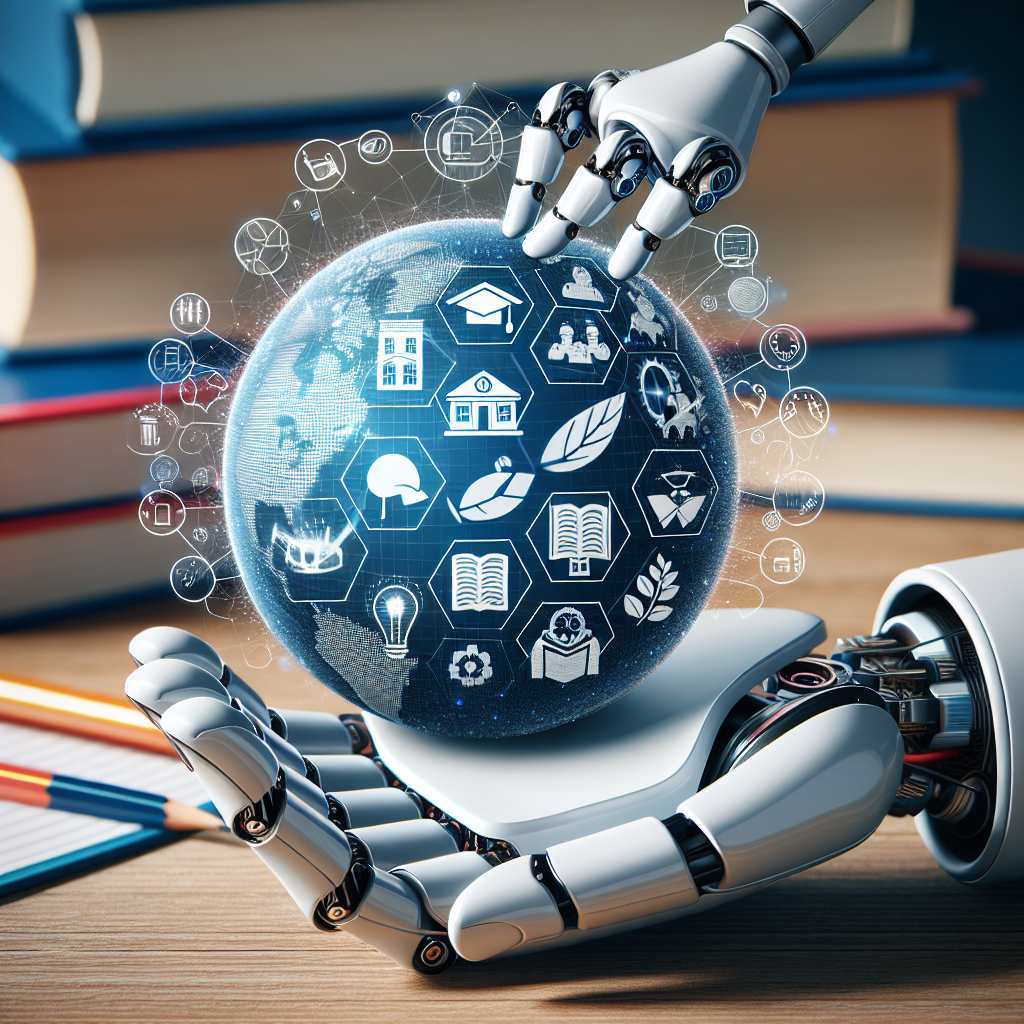In recent years, the use of artificial intelligence (AI) in education policy has become increasingly prevalent. AI has the potential to revolutionize the way education is delivered, assessed, and managed. From personalized learning experiences to data-driven decision making, AI is transforming the education landscape in ways that were previously unimaginable.
The Role of AI in Education Policy
AI is being used in education policy in a variety of ways, with the goal of improving student outcomes and enhancing the overall educational experience. One of the key areas where AI is making an impact is in personalized learning. By analyzing data on student performance and behavior, AI can create personalized learning plans that cater to the individual needs and learning styles of each student. This ensures that students are receiving the support and resources they need to succeed, leading to improved academic performance and increased engagement.
AI is also being used to enhance the assessment process. Traditional forms of assessment, such as standardized tests, are often limited in their ability to accurately measure student learning. AI-powered assessment tools, on the other hand, can provide a more comprehensive and nuanced understanding of student knowledge and skills. These tools can analyze large amounts of data to identify trends and patterns in student performance, helping educators to better assess student progress and tailor instruction accordingly.
Another important role that AI is playing in education policy is in data-driven decision making. By analyzing large amounts of data on student performance, attendance, and behavior, AI can help policymakers and educators identify trends and patterns that may impact student outcomes. This data can be used to inform policy decisions, allocate resources more effectively, and identify areas where additional support may be needed. By leveraging AI to make data-driven decisions, education policymakers can ensure that resources are being used efficiently and effectively to support student success.
FAQs
Q: How is AI being used in personalized learning?
A: AI is being used in personalized learning to analyze data on student performance and behavior, creating personalized learning plans that cater to the individual needs and learning styles of each student. This ensures that students are receiving the support and resources they need to succeed.
Q: How is AI enhancing the assessment process in education?
A: AI-powered assessment tools can provide a more comprehensive and nuanced understanding of student knowledge and skills. These tools can analyze large amounts of data to identify trends and patterns in student performance, helping educators to better assess student progress and tailor instruction accordingly.
Q: How is AI supporting data-driven decision making in education policy?
A: By analyzing large amounts of data on student performance, attendance, and behavior, AI can help policymakers and educators identify trends and patterns that may impact student outcomes. This data can be used to inform policy decisions, allocate resources more effectively, and identify areas where additional support may be needed.
In conclusion, the role of AI in education policy is becoming increasingly important as technology continues to advance. AI has the potential to revolutionize the way education is delivered, assessed, and managed, leading to improved student outcomes and enhanced educational experiences. By leveraging AI to personalize learning, enhance assessment processes, and support data-driven decision making, education policymakers can ensure that resources are being used efficiently and effectively to support student success.

